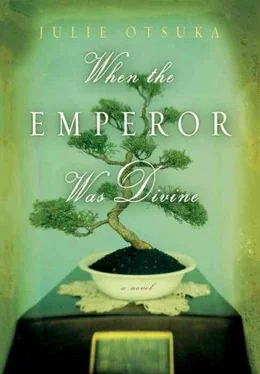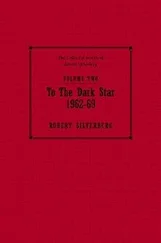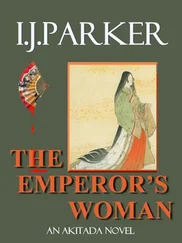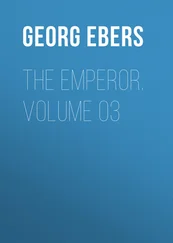EVERY DAY, all around us, more and more men were coming home from the war. They were fathers and brothers and husbands. They were cousins and neighbors. They were sons. They arrived, by the thousands, on the huge battle-scarred ships that sailed into the bay. Some of them had seen combat on Okinawa and New Guinea. Some had fought on Guadalcanal. Some had made D-day landings in the Marshalls, on Saipan, Tinian, Luzon, and Leyte. Some had been found, more dead than alive, in prison camps in Manchuria and Ofuna at the end of the war.
They shoved bamboo splinters under our fingernails and made us kneel for hours.
We had to stand at attention with our hands at our sides while they beat us.
We were just numbers to them, mere slaves to the Emperor. We didn’t even have names. I was 326. San byaku ni ju roku.
We had to make deep bows, even to the coolies and the rickshaw runners.
If we go easy on the Japs we’re crazy.
Best day of my life? The day Harry dropped that beautiful bomb.
There were victory parades in their honor, with horses and trumpets and great showers of confetti. Mayors on windy platforms stood up and gave speeches, and children in red, white, and blue waved the flag. Squadrons of returning B-29s swooped down out of the sky and flew overhead in perfect formation as down below, on the streets, the crowds roared and wept and welcomed the good men home.
We kept up with the stories in the papers. More Rescued Prisoners Tell of Japan’s Torture Camps. Some Forced to Wear Metal Bits, Others Starved to Death. Trapped Yanks Doused with Gasoline and Turned into Human Torches. We listened to the interviews on the radio. Tell me, soldier, has it made a big di ference to you, losing your leg? We looked at ourselves in the mirror and did not like what we saw: black hair, yellow skin, slanted eyes. The cruel face of the enemy.
We were guilty.
Just put it behind you.
No good.
Let it go.
A dangerous people.
You’re free now.
Who could never be trusted again.
All you have to do is behave.
On the street we tried to avoid our own reflections wherever we could. We turned away from shiny surfaces and storefront windows. We ignored the passing glances of strangers. What kind of “ese” are you, Japanese or Chinese?
AT SCHOOL our new teachers were kind to us, and the students in our classes polite, but at lunchtime they would not sit with us, or invite us to join in their games, and not a single one of our old friends from before— friends who had once shouted out to us, Your house or mine? every afternoon, after school, and in whose backyards we had dug holes and built forts, friends whose mothers (tall, slender women in sparkling white kitchens) had invited us to stay for supper (“We’ll call your mother”) and whose fathers, on clear nights, had shown us the stars (“Now stand still and look up !”), friends with whom we had gone skating, every winter, at IceLand, and whose birthdays (Jimmy Buchanan, May 26, Edison Wong, October 3, the Trudeau twins, Cora and Dora, June 29) we still remember, to this day—came up to us to say, “Welcome back,” or “Good to see you,” or even seemed to remember who we were.
Perhaps they were embarrassed—we had written to them (hello, how are you, it’s very hot here in the desert) but only one person (Elizabeth, Elizabeth, where had she gone?) had bothered to write back.
Or maybe they were afraid. (Later, we would learn that the postman, Mr. DeNardo, had told them that anyone who wrote to us was guilty of helping the enemy. “Those people bombed Pearl Harbor! They deserved what they got.”)
Perhaps they had never expected us to come back and had put us out of their minds once and for all long ago. One day we were there and the next day, poof, our names had been crossed off the roll books, our desks and lockers, reassigned, we were gone.
And so we mostly kept to ourselves. We moved silently through the halls with our eyes fixed on some imaginary point far off in the distance. If there was whispering behind us—and there was—we did not hear it. If the other students called out to us unkindly—and they did, not often, but often enough—we did not hear them. In class we sat in the back where we hoped we would not be noticed. (Keep your head down and don’t cause any trouble, we’d been told, weeks before, in a mess hall lecture on “How to Behave in the Outside World.” Speak only English. Do not walk down the street in groups of more than three, or gather in restaurants in groups of more than five. Do not draw attention to yourselves in any way.) We spoke softly and did not raise our hands, not even when we knew the answers. We followed the rules. We took tests. We wrote compositions. The Happiest Day of My Life. What I Did Over My Summer Vacation. What I Would Like to Be When I Grow Up (a fireman, a movie star, I’d like to be you!). We stared out the windows. From time to time we glanced at the clock (soon the bell would ring and it would be after school and we could go home). Always, we were polite.
We said yes and no and no problem.
We said thank you.
Go ahead.
After you.
Don’t mention it.
Don’t worry about it.
Don’t even think about it.
When our teachers asked us if everything was all right we nodded our heads and said, yes, of course, everything was fine.
If we did something wrong we made sure to say excuse me (excuse me for looking at you, excuse me for sitting here, excuse me for coming back). If we did something terribly wrong we immediately said we were sorry (I’m sorry I touched your arm, I didn’t mean to, it was an accident, I didn’t see it resting there so quietly, so beautifully, so perfectly, so irresistibly, on the edge of the desk, I lost my balance and brushed against it by mistake, I was standing too close, I wasn’t watching where I was going, somebody pushed me from behind, I never wanted to touch you, I have always wanted to touch you, I will never touch you again, I promise, I swear…).
After school we gathered our books and walked home along the clean, sunlit streets, past the yellow fire hydrants and the bright green lawns now covered with leaves. Sometimes groups of boys would appear out of nowhere and circle us slowly on their bicycles without saying a word. Sometimes we heard whistling behind us but when we turned around there was nobody there. Sometimes one of us would suddenly stop on the sidewalk and point to a neighbor’s front window. Wasn’t that our mother’s Electrolux Mrs. Leahy was pushing back and forth across her living room floor? Didn’t the Gilroys’ mohair sofa look awfully familiar? Hadn’t we seen that rolltop desk in Mr. Thigpen’s library somewhere before? One day we even thought we saw our father himself flapping his arms up and down like a stork in Mrs. Murphy’s pale pink bedroom—what on earth was he doing over there ? — but it was only Chang, the Murphys’ new houseboy, plumping pillows.
AT NIGHT we often heard footsteps on the stairs. The sudden creaking of floorboards. Strange sounds coming from the kitchen. Somebody was opening the cupboard. Somebody was raiding the icebox. Somebody was whistling to the tune, “Let me straddle my old saddle beneath the western sky….” Somebody was tapping, softly, at the back door (It’s him !). We’d go out into the hall and see our mother standing in the darkness by the window in her thin cotton nightgown, peering out through a gap in the curtains. “Just keeping an eye on things,” she’d say. Or she would motion us over and point to the dark empty spot in our front yard. “Where’s my rosebush?” she’d whisper.
Читать дальше












